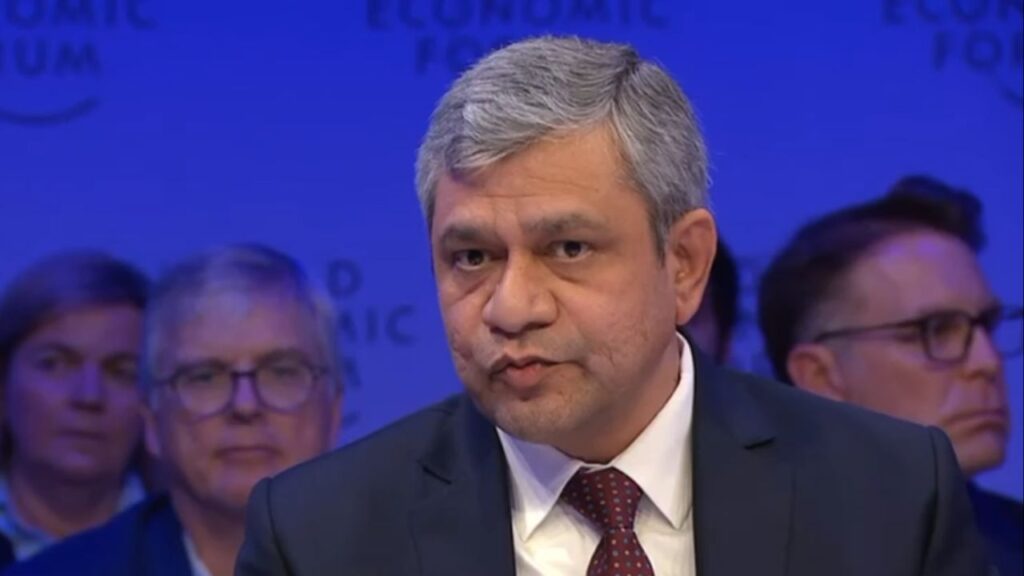NIN365 Desk, Kolkata : India’s pursuit of foreign direct investment (FDI) has taken center stage on the global economic front, as the nation sets its sights on an ambitious annual inflow target of $100 billion in the coming years. This bold aspiration was revealed by Ashwini Vaishnaw, India’s Union Minister for Information and Technology, during a compelling discussion at the prestigious Davos World Economic Forum.
Railway minister Ashwini Vaishnaw underscored the significance of a meticulously crafted strategy that forms the bedrock of India’s FDI vision. This comprehensive plan revolves around four pivotal engines, each designed to propel the nation into a new era of economic prowess.
The primary engine in this grand strategy places a strong emphasis on substantial investments in infrastructure development. Recognizing the crucial role that robust infrastructure plays in fostering economic growth, India is gearing up for transformative projects that span transportation, energy, and digital connectivity.
The second engine of India’s FDI strategy is dedicated to uplifting the masses in countries grappling with widespread poverty. By directing investments toward socio-economic development programs, the nation aims to make a tangible impact on improving living standards and reducing poverty levels in these regions.
Manufacturing growth takes the spotlight as the third engine of India’s strategy. Acknowledging the pivotal role that a thriving manufacturing sector plays in creating jobs and boosting economic output, the government is committed to accelerating growth in this critical area.
Lastly, the fourth engine involves streamlining and making business operations in India more accessible. Recognizing the importance of a business-friendly environment, the Indian government is actively working to remove bureaucratic hurdles, simplify regulatory processes, and enhance the ease of doing business in the country.
Minister Ashwini Vaishnaw highlighted the substantial interest shown by foreign investment giants, further solidifying India’s attractiveness on the global investment stage. Companies such as Apple, Samsung, Kia, and Airbus have made significant commitments to operate in India, signaling their confidence in the nation’s economic potential.
As the fiscal year progresses, the $100 billion FDI target comes into clearer focus. The $33 billion influx in the initial phase sets a robust foundation, propelling India towards its economic growth rate target of 7.3%. The world watches in awe as India emerges as a powerhouse of economic resurgence, a testament to the effectiveness of its well-defined strategy.
Beyond the economic metrics, the human aspect of this transformation is equally compelling. Communities once marginalized find themselves at the forefront of progress, benefiting from newfound opportunities and improved living standards. India’s narrative becomes one of inclusivity, where economic growth isn’t just a statistic but a force that touches every corner of the nation.
In the global arena, India’s success story serves as an inspiration for emerging economies. The strategic blueprint that combines visionary leadership, foreign partnerships, and a commitment to holistic development becomes a case study for nations aspiring to chart a similar trajectory.
As the final chapters of this transformative story unfold, India stands at the crossroads of a new era. The journey towards a $100 billion annual FDI influx becomes a testament to the nation’s resilience, adaptability, and unwavering commitment to shaping a future where economic prosperity knows no bounds. The world witnesses India’s rise not just as an economic force but as a harbinger of positive change, reminding us all that a well-crafted vision, backed by strategic execution, has the power to redefine destinies and reshape the world.
DISCLAIMER
Our news media denounces any form of bias and disapproves of sensationalism. The disseminated news is entirely educational and aimed at social awareness. Our media maintains absolute impartiality, adhering solely to the purpose of education and social consciousness.


